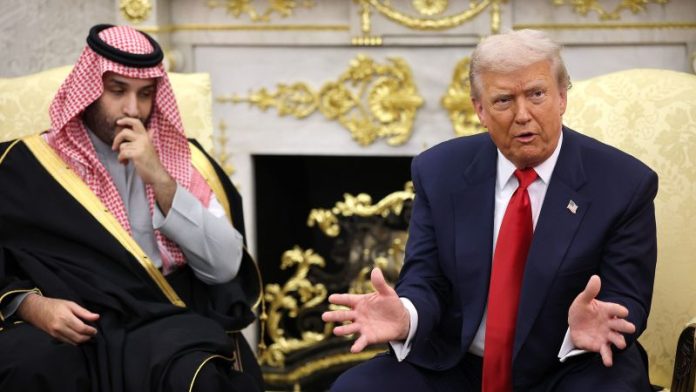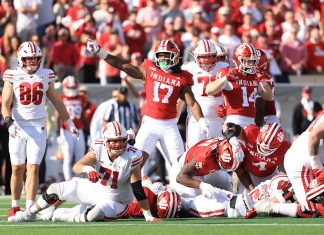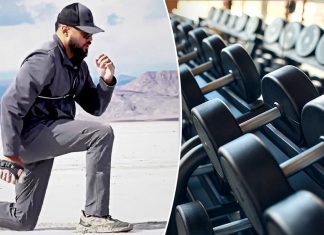In 2018, the CIA under the first Trump administration concluded that Saudi Arabia’s Crown Prince Mohammed bin Salman ordered the gruesome murder of a US resident and journalist, Jamal Khashoggi.
The GOP-led Senate voted unanimously to condemn the crown prince. One Republican senator remarked at the time that if the matter went before a jury, the crown prince “would be convicted in 30 minutes.”
President Donald Trump has made it abundantly clear that he simply doesn’t care about Khashoggi’s killing all that much. But even by his standards, Trump’s comments alongside the crown prince on Tuesday were stunning.
Trump went from downplaying Khashoggi’s murder to vouching for the crown prince (who has denied personal involvement).
While Trump previously suggested we’d never know for sure whether the crown prince were guilty, this time he said affirmatively that Prince bin Salman “knew nothing about it.”
While the president previously gestured suggestively at conservative talking points about Khashoggi’s past associations with Islamist movements (a past that the evidence shows Khashoggi abandoned), this time Trump all but said the journalist had it coming. He called Khashoggi “extremely controversial,” and said, “Whether you liked him or didn’t like him, things happen” — as if dismembering someone with a bone saw were just a fluke.
And perhaps most strikingly, Trump rebuked a reporter for even asking about this in the crown prince’s presence.
“You don’t have to embarrass our guest by asking a question like that,” Trump said in the Oval Office.
Khashoggi’s widow, Hanan Elatr Khashoggi, responded to Trump’s comments by saying the journalist’s past was “not justification to murder him.”
“Jamal was a good, transparent and brave man,” she added in comments to CNN.
Trump is hardly the first president to bow to the strategic and geopolitical importance of keeping good relations with Saudi Arabia; presidents of both parties have offered tough talk about the Saudis on the campaign trail and then adjusted course once in office.
But what sets Trump apart is his almost complete lack of interest in even pretending that he’s factoring human rights into that equation. In fact, he opened his meeting with the crown prince on Tuesday by saying, “What he’s done is incredible, in terms of human rights and everything else.”
And this has been a constant throughout Trump’s decade in the national spotlight.
Here are some of his more remarkable comments on human rights and alleged human rights abusers, mostly from his first term.
Shortly after Trump first took office, then-Fox News host Bill O’Reilly posited to him that Russian President Vladimir Putin was “a killer.”
“There are a lot of killers,” Trump said. “You think our country’s so innocent?”
When Russia’s war in Ukraine began in 2022, Trump initially praised Putin’s “genius” and “savvy” in launching the unprovoked invasion, even as Western leaders roundly condemned it. (Trump has since said he’s “very disappointed” in the Russian leader amid the ongoing war.)
When another Fox host noted that North Korean leader Kim Jong Un executed lots of people, Trump responded: “He’s a tough guy.”
When pressed again on Kim doing “some really bad things,” Trump added: “Yeah, but so have a lot of other people done some really bad things. I mean, I could go through a lot of nations where a lot of bad things were done. Now look, with all of that being said, the answer is yes.”
“He was a bad guy — really bad guy,” Trump, then a presidential candidate, said of late Iraqi President Saddam Hussein. “But you know what he did well? He killed terrorists. He did that so good. They didn’t read them the rights. They didn’t talk. They were terrorists — over.”
In fact, Hussein killed lots of people — not just alleged terrorists — without due process. A 2002 State Department report said he did so “because he believes that their political beliefs, faith, ethnic background, family members or acquaintances are a threat to his power.”
Former Philippine President Rodrigo Duterte’s drug war featured large numbers of extrajudicial killings and was widely condemned by human rights groups.
And not only did Trump not condemn that; he at one point during his first term praised Duterte.
“I just wanted to congratulate you because I am hearing of the unbelievable job on the drug problem,” Trump told Duterte during an April 29, 2017, phone call, according to a transcript whose basic contents were confirmed by CNN.
Trump added: “Many countries have the problem, we have a problem, but what a great job you are doing, and I just wanted to call and tell you that.”
(A senior US official said at the time that Trump was merely acknowledging the US is combating its own drug problem, not condoning violence and human rights violations.)
Former Trump national security adviser John Bolton in his 2020 book recounted a scene from a G20 summit. In it, Trump and Chinese leader Xi Jinping discussed the Chinese government’s detention camps for Uyghur Muslims in western China.
“With only interpreters present, Xi had explained to Trump why he was basically building concentration camps in Xinjiang. According to our interpreter, Trump said that Xi should go ahead with building the camps, which Trump thought was exactly the right thing to do,” Bolton wrote. “The National Security Council’s top Asia staffer, Matthew Pottinger, told me that Trump said something very similar during his November 2017 trip to China.”
Then-US Trade Representative Robert Lighthizer denied the account, calling it “absolutely untrue” and “completely crazy.”
Trump in a social media post in August referred to the “highly respected President of Belarus, Aleksandr Lukashenko.”
Lukashenko has long been accused of egregious human rights abuses and even crimes against humanity. He has often been called Europe’s last dictator by foreign policy watchers.
What’s more, Trump’s own State Department in 2020 declined to recognize Lukashenko as the legitimate president of Belarus, citing a rigged election.







